Securing your business is a top priority, and a well-chosen security camera system plays a critical role in protecting your assets, employees, and customers. With numerous options available in the market, deciding on the right system can be overwhelming. Factors like the size of your business, industry-specific needs, and budget all come into play when selecting the best system for your requirements. This guide provides insights into the key considerations for choosing the right security camera system for your business in Canada, helping you make an informed decision that enhances both security and efficiency.
Assess Your Business Needs
Before purchasing a security camera system, it’s crucial to assess your business needs thoroughly. This involves considering factors such as the size of your business, the nature of your industry, and your specific security objectives.
Business Size
For small businesses, a simple setup with a few cameras might suffice, targeting high-traffic areas like entrances and exits. A basic system allows for real-time monitoring and provides enough coverage to deter potential theft or misconduct.
Larger enterprises, on the other hand, may require a more comprehensive security setup. This could involve multiple cameras, advanced features such as motion detection and facial recognition, and integration with other security measures like alarm systems or access controls. Larger businesses often need to cover multiple entry points, warehouse spaces, parking lots, and office areas.
Industry-Specific Requirements
Every industry has different security needs, and your business’s industry will heavily influence your choice of a security system. For example, retail stores typically focus on theft prevention and customer interaction monitoring. In contrast, hospitality businesses may need to focus on both guest safety and property protection, ensuring a welcoming yet secure environment.
Manufacturing facilities need cameras that can monitor equipment and production lines, ensuring operational safety and security for employees. Healthcare facilities face unique challenges with strict privacy laws, but they still need to protect patients, staff, and sensitive areas like pharmacies or restricted medical equipment rooms.
Security Objectives
Identifying your security objectives is essential when selecting a camera system. Are you primarily focused on preventing theft, monitoring employee productivity, or managing access to sensitive areas? If theft prevention is a concern, opt for high-resolution cameras that capture clear images and can provide useful footage for identification purposes. For employee monitoring or access control, integrating your camera system with other security tools, such as key card systems, may be beneficial. Additionally, if liability protection is a priority, you’ll need cameras that can capture detailed records of incidents to prevent or resolve fraudulent claims.
Understanding the Types of Security Cameras
The type of security cameras you choose will depend on the areas you need to cover, the level of surveillance required, and your budget. Familiarize yourself with the different types of cameras to determine which is most appropriate for your business.
Bullet Cameras
Bullet cameras are cylindrical in shape and are typically used to focus on specific areas like doorways or parking lots. Their fixed direction and high visibility make them effective deterrents for would-be intruders. Bullet cameras are often weatherproof, making them suitable for outdoor use in Canada’s varied climate.
Dome Cameras
Dome cameras offer a sleek, unobtrusive design that allows them to blend into the environment. They are best suited for indoor areas where wide-angle surveillance is needed. These cameras are often vandal-resistant, adding an extra layer of protection in high-risk areas such as retail environments or public spaces.
PTZ (Pan-Tilt-Zoom) Cameras
PTZ cameras provide enhanced surveillance capabilities by allowing remote control over their movement. They can pan across wide areas, tilt to different angles, and zoom in on specific points of interest. PTZ cameras are ideal for monitoring large areas like warehouses, parking lots, or expansive lobbies where comprehensive coverage is necessary.
Thermal Cameras
Thermal cameras detect heat signatures, allowing for surveillance in low-light conditions or complete darkness. These cameras are commonly used for perimeter security, where detecting intruders in challenging environments is critical. They can identify people or objects by their heat, making them an excellent choice for night-time security or environments with poor visibility.
Hidden Cameras
Hidden cameras, often referred to as covert cameras, are used for discreet monitoring. These cameras are typically smaller and less noticeable, making them effective for surveillance in sensitive areas. However, businesses must ensure compliance with Canadian privacy laws when using hidden cameras, as they should not be installed in areas where privacy is expected, such as restrooms or private offices.
Key Features to Consider
Choosing the right security camera system involves considering key features that will determine how effective your system is in meeting your business’s security needs.
Resolution and Image Quality
The resolution of your cameras is one of the most important factors to consider. High-definition (HD) cameras, typically 1080p, provide clear, detailed footage suitable for most small to medium-sized businesses. For large spaces or environments where high-quality identification footage is necessary, ultra HD or 4K cameras offer even more clarity.
Night Vision
A business that operates at night or needs 24/7 security will require cameras with infrared (IR) capabilities or low-light performance features. IR cameras allow you to capture clear images in darkness, while cameras with larger sensors are better at processing low-light scenes, essential for round-the-clock surveillance.
Weatherproofing
For outdoor surveillance in Canada, it’s crucial to choose weatherproof cameras with a high IP (Ingress Protection) rating. Cameras with an IP66 rating, for instance, are well-protected against dust and heavy rain. Ensure that the cameras can also function in the varying temperatures Canada experiences, from freezing winters to hot summers.
Wired vs. Wireless Systems
Wired security systems offer a more stable and reliable connection but can involve more complex installation processes, especially in large buildings. Wireless systems, while easier to install, can experience interference from other wireless devices, which may lead to connectivity issues.
Storage Solutions
Security camera systems come with various storage options, including local and cloud storage. Local storage, such as DVRs and NVRs, allows you to store footage on-site, while cloud storage enables remote access to footage from any location with an internet connection. Consider which option best fits your business’s operational needs and security preferences.
Integration and Scalability
Smart systems that integrate with other security components such as alarms, access control, and mobile devices offer increased functionality and control. Additionally, ensure that your system is scalable, meaning you can add more cameras or features as your business grows.
Legal Considerations in Canada
Canadian businesses must comply with privacy laws when installing and operating security cameras. The Personal Information Protection and Electronic Documents Act (PIPEDA) governs how businesses collect and use personal information. Ensure that visible signage is in place to inform individuals that they are under surveillance. Additionally, avoid installing cameras in areas where individuals have an expectation of privacy, such as restrooms.
It’s also important to securely store recorded footage and ensure that access to it is limited to authorized personnel only. Retain footage only for as long as necessary to meet your security objectives, and ensure that data protection measures are in place to prevent unauthorized access.
Budgeting for Your Security System
Budget is an important consideration when choosing a security camera system. Initial costs include purchasing cameras, storage devices, and possibly monitors, while professional installation fees may also apply. Ongoing costs could include maintenance and subscription fees for cloud storage or monitoring services.
When weighing the costs, consider the potential return on investment (ROI). A well-designed security system can prevent theft, minimize liability risks, and ultimately provide peace of mind, all of which contribute to long-term cost savings.
Selecting a Professional Installer
While some businesses may consider installing a security camera system themselves, it’s often best to hire a professional installer. Certified technicians with experience in commercial installations will ensure that your system is correctly set up and optimized for your specific needs. Additionally, professional installers can offer tailored recommendations and provide after-sales support, including warranties and technical assistance.
Understanding NDAA Compliance
Though the National Defense Authorization Act (NDAA) is a U.S. law, its impact extends to businesses in Canada, especially those working with U.S. government agencies or contractors. NDAA compliance prohibits the use of certain video surveillance equipment from specific Chinese manufacturers, including Hikvision and Dahua, due to cybersecurity concerns. Choosing NDAA-compliant security cameras not only enhances your security posture but also positions your business as a trustworthy partner in global supply chains.
Making the Final Decision
When deciding on the best security camera system for your business, compare multiple options by getting quotes from different providers. Analyze the features they offer and align them with your prioritized security objectives. Customer reviews and testimonials can provide valuable insights into the reliability of the system and the provider’s customer service.
Looking toward the future, it’s also beneficial to choose a system that can adapt to new technological advancements, ensuring that your investment remains relevant and effective in the long term.
Contact Live Patrol for Live Video Monitoring and Security Cameras for Businesses in Canada
When it comes to securing your business, having the right security camera system is only the first step. Live Patrol offers live video monitoring services and tailored security camera solutions designed specifically for businesses in Canada. Whether you’re looking for a basic camera setup or an integrated security solution, our team of professionals will make sure that your system meets your unique security needs while complying with all relevant legal requirements. Contact Live Patrol today to learn how we can help safeguard your business with industry-leading security technology and expertise.


